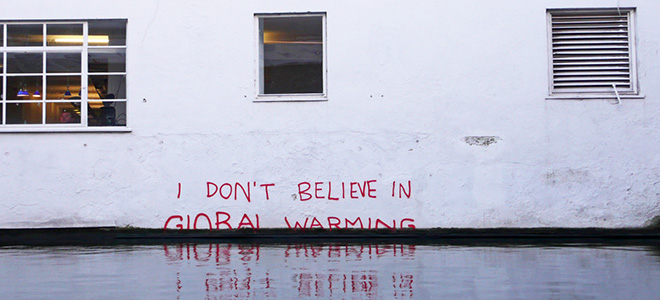
by Alex Lee (CSTPR alumni and former STP Certificate Instructor)
High Country News
September 7, 2017
The U.S. Department of Agriculture, which is in charge of the Forest Service as well as several agricultural and food-related research agencies, recently told its staffers to avoid using the term “climate change.” The business-as-usual term “weather extremes” was recommended instead.
While dropping the word “climate” may seem like a defeat for those of us who remain convinced that human influences are harming the global environment, this federal directive made in the spirit of changing the narrative might be good advice. Could it be that the term itself has failed us?
Suppose for a moment you are in a restaurant and someone yells, “Help, she’s having a heart attack!” Being a good person, you would no doubt spring into action, call 9-1-1, look for aspirin or a defibrillator, and so on.
Suppose that same person had instead yelled, “Help, she’s having a myocardial infarction!” You would probably react the same way, but wouldn’t you perhaps pause for just a second? Unless you’re a medical professional, wouldn’t you first have to engage in some type of internal translation? I would. The ailing woman might get better care at a hospital with such detailed wording, but the immediate danger she faces in the restaurant hides behind the wrong language.
Here’s the problem: Although most Americans today say that climate change is a real and serious issue, most probably don’t understand what the term climate means. The difference between climate and weather, the moving target of climate averages, and the intangibility of climate experience all make climate a problematic word to rally around. I know the Northwest has a rainy climate, and because I experience getting wet frequently, I know in my bones that this is true. But alas, the word “climate” can become jargon.
Yes, the climate is changing, but it is an acute global environmental crisis — global warming — that is touching the realities of daily life for millions of people around the world.
Houston, Texas, just turned into a gigantic and growing lake. Furnace Creek, California, the hottest place on earth, posted its hottest July on record. Unprecedented peat fires burn in Greenland, extreme weather events across the globe abound, and they are tied not just to generalized climate change but directly to heat. The term “global warming” comes with baggage stuffed full of 30 years of politics, but for now it is the best we have. Read more …

